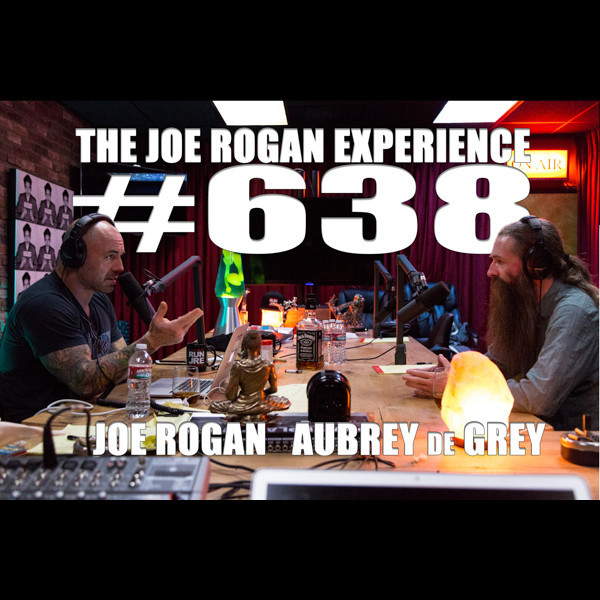4/22/2015
Podcast Topic Breakdown: #638 – Aubrey de Grey
This podcast delves into the world of anti-aging research with renowned gerontologist Aubrey de Grey, exploring the science behind extending human lifespan and the potential impact on society. Provocative topics include the nature of aging, the potential of damage repair therapies, the philosophical implications of living longer, and the challenges of funding such ambitious research. The podcast reveals deep underlying themes surrounding the pursuit of scientific progress, the ethics of life extension, and the role of humanity in shaping its future.
1. Aging: A Disease to Be Conquered
- De Grey argues that aging itself is a collection of interconnected problems, not a singular disease.
- He challenges the common perception of aging as an inevitable process, advocating for a more nuanced view of the underlying mechanisms of cellular damage.
- He proposes a “divide and conquer” approach to addressing the multitude of aging-related problems, focusing on specific types of damage and their repair.
- De Grey highlights the importance of moving beyond symptom-based treatments for age-related diseases and instead tackling the root causes of cellular deterioration.
2. Damage Repair: A Promising Pathway
- De Grey outlines his research program focusing on damage repair, which aims to restore the body’s molecular and cellular structure to a more youthful state.
- He emphasizes the significance of addressing seven specific categories of damage, each with its own targeted repair strategy.
- He cites stem cell therapy as a potential cure for diseases like Parkinson’s, demonstrating the progress in repairing cell loss.
- He discusses various research avenues, including the use of engineered bacteria to degrade oxidized cholesterol, a key contributor to heart disease, and suicide gene therapy to control the overgrowth of immune cells.
3. The Philosophical Implications of Life Extension
- The podcast explores the ethical and societal implications of dramatically extended lifespans, addressing concerns about overpopulation and resource depletion.
- De Grey argues that these concerns are often overblown, pointing out that human impact on the environment is primarily due to consumption, not population size.
- He emphasizes that the potential benefits of extended lifespans, such as increased wisdom and contributions to society, outweigh the hypothetical risks.
- He stresses the importance of leaving such decisions to future generations, who will have access to more information and technological advancements.
4. The Importance of Funding and Collaboration
- De Grey expresses frustration with the current limited funding for anti-aging research, emphasizing the need for greater investment in addressing the world’s leading cause of suffering.
- He acknowledges the challenges of obtaining funding from both private and public sources, due to the long-term nature of such research and the hesitancy of investors to fund high-risk projects.
- He highlights the importance of fostering greater collaboration among researchers, breaking down silos and promoting interdisciplinary work.
- He stresses the need to educate the public and raise awareness about the potential of life extension, inspiring greater support for the field.
5. The Role of Lifestyle in Longevity
- De Grey acknowledges the importance of healthy habits like diet and exercise, but emphasizes that their impact on longevity is relatively small compared to the potential of damage repair therapies.
- He suggests that these lifestyle interventions may be more effective for individuals who age unusually rapidly or experience specific age-related problems.
- He cites the example of the United States’ lower life expectancy despite high healthcare spending as evidence that lifestyle alone is not the primary driver of longevity.
- He underscores the need to focus on more sophisticated interventions to achieve significant life extension.
6. The Future of Life Extension: Hope and Caution
- De Grey remains cautiously optimistic about the future of anti-aging research, acknowledging both the potential and the complexities of the field.
- He emphasizes that progress will be gradual, involving numerous breakthroughs and advancements in various areas.
- He cautions against over-optimistic timelines, acknowledging the uncertainties and challenges inherent in research.
- He stresses the importance of continuing to push the boundaries of knowledge and technology, aiming to improve the quality and duration of human life.
7. The Importance of Public Awareness and Engagement
- De Grey recognizes the crucial role of public engagement in advancing the field of life extension research.
- He encourages open dialogue and discussion about the ethical and societal implications of such advancements.
- He emphasizes the importance of fostering greater public understanding of the science and potential benefits of life extension.
- He encourages individuals to support organizations like SENS Research Foundation, contributing to the development of life-extending therapies.
5 Memorable Quotes:
- “The really important thing to understand about medical research into aging is to start up from remembering that aging is not just one phenomenon. It’s a collection of network of interacting phenomena.”
- “The biggest thing that I always point to is the absolutely biologically inaccurate and damaging idea that the diseases of old age are in some sense distinct from aging itself. It’s complete nonsense.”
- “It’s been very clear to me for at least 15 years now that the way to do this is damage repair, that we must develop a panel of interventions of panel therapies, which go in and restore the molecular and cellular structure and composition of the body of an elderly person to how it was more or less in early adulthood.”
- “Breathing is bad for you. Breathing is why we got free radicals.”
- “If we can bring that truly under control, then this will empower us. It will make us feel really much more confident that we can address there are the other really hard problems, whether it’s climate change, you know, well peace, whatever it might be.”
